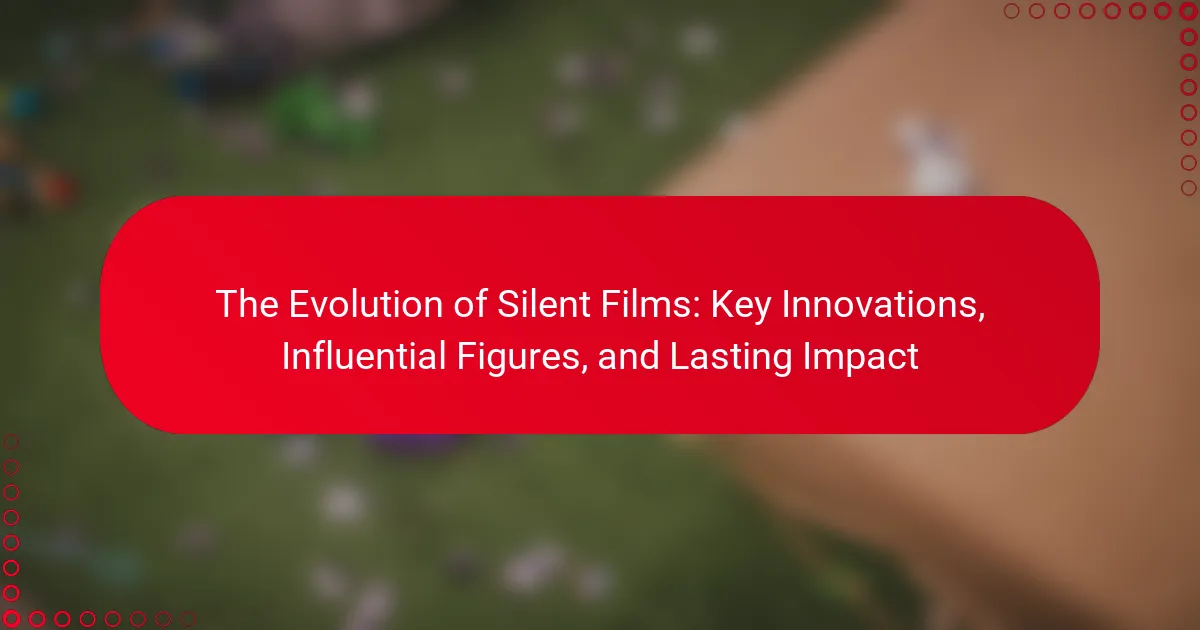The article explores the evolution of silent films, which are motion pictures characterized by the absence of synchronized sound or spoken dialogue, prevalent from the late 19th century to the late 1920s. It highlights key innovations that shaped this era, including narrative storytelling techniques, advancements in film technology, and the use of intertitles. Influential figures […]
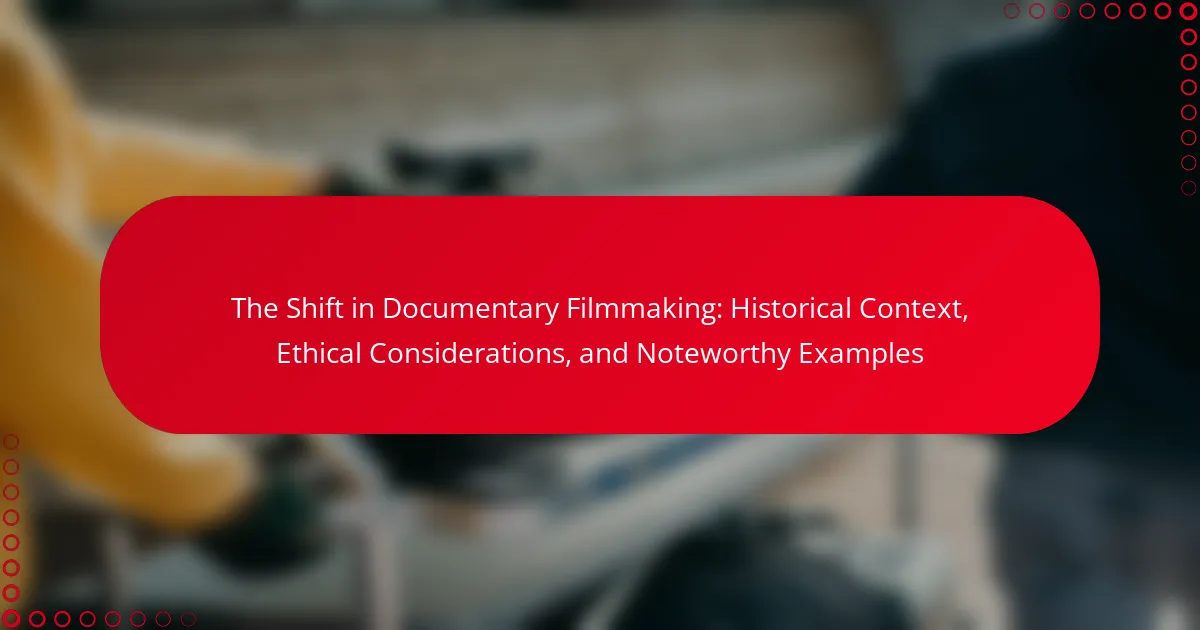
The Shift in Documentary Filmmaking: Historical Context, Ethical Considerations, and Noteworthy Examples
Documentary filmmaking is a genre that has evolved significantly since its inception in the early 20th century, marked by influential works like “Nanook of the North” in 1922. The genre has undergone various transformations, including the rise of propaganda films in the 1930s, the direct cinema movement post-World War II, and the impact of digital […]
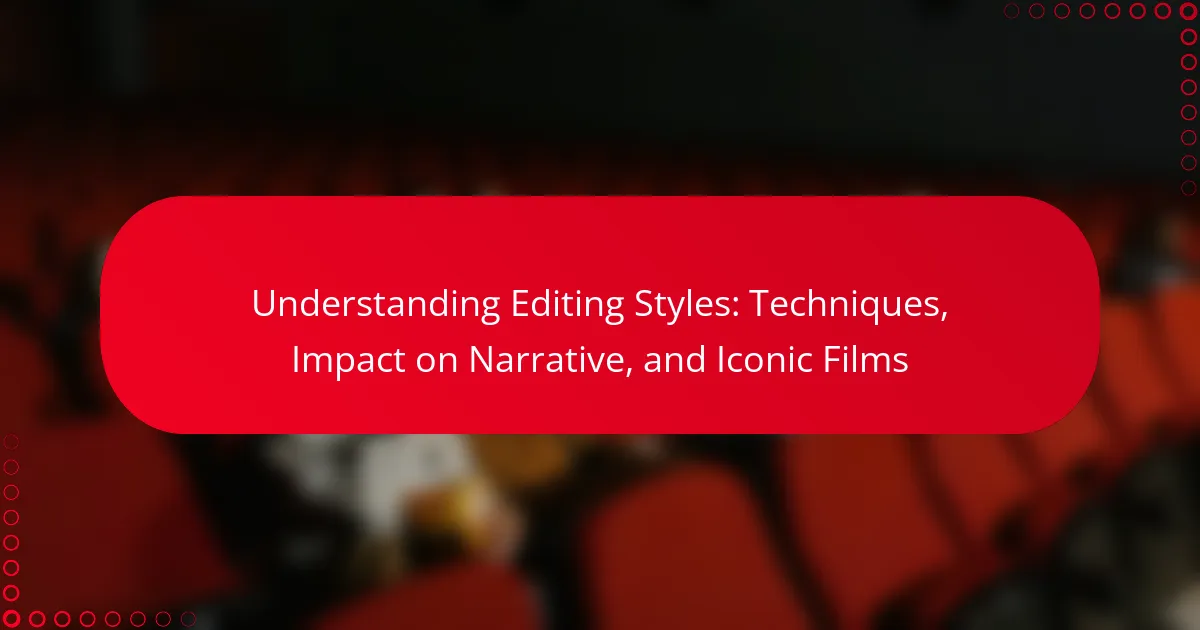
Understanding Editing Styles: Techniques, Impact on Narrative, and Iconic Films
Editing styles in film encompass various techniques utilized to assemble shots into a coherent narrative, significantly influencing pacing, mood, and storytelling. Key editing techniques include continuity editing, which ensures a seamless flow and maintains spatial and temporal coherence; montage, which juxtaposes images to convey meaning or emotion; and cross-cutting, which alternates between scenes to build […]

The Art of Production Design: Key Elements, Historical Trends, and Famous Films
Production design is the process of creating the visual environment for film, television, and theater, encompassing the design of sets, locations, props, and overall aesthetics to enhance storytelling. This article explores the key elements of production design, its historical trends, and notable films that exemplify exceptional design work. It highlights the collaboration between production designers, […]
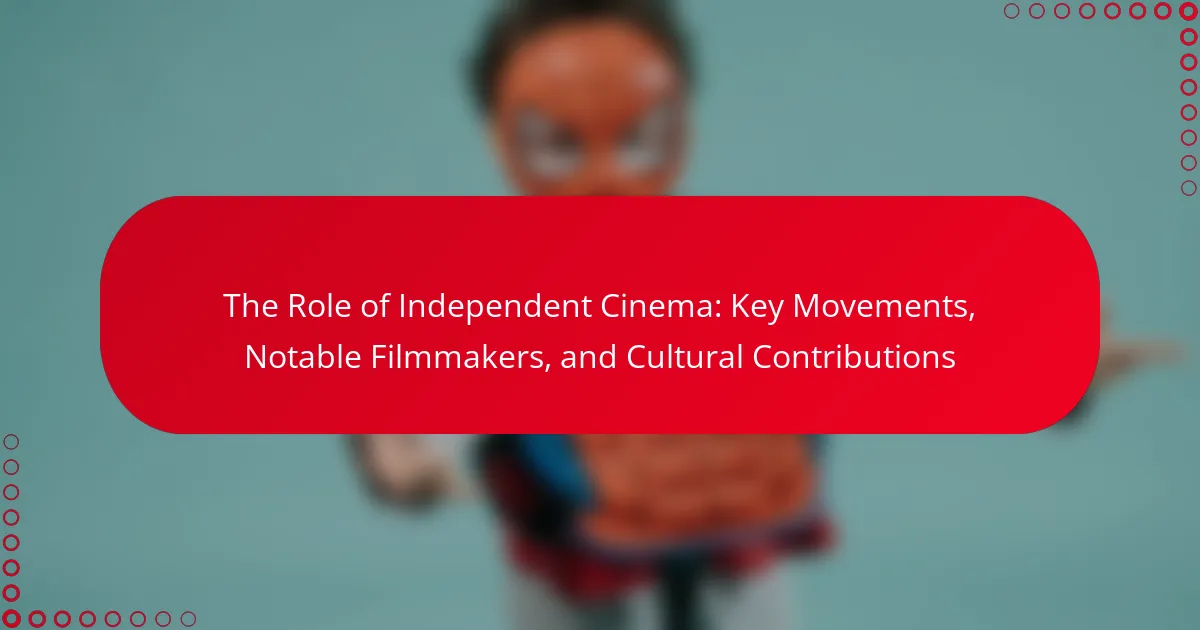
The Role of Independent Cinema: Key Movements, Notable Filmmakers, and Cultural Contributions
Independent cinema is a vital sector of the film industry that promotes diverse storytelling and artistic expression beyond mainstream commercial constraints. It enables filmmakers to explore unique narratives and cultural themes, often addressing social issues overlooked by larger studios. Notable filmmakers such as Quentin Tarantino, the Coen Brothers, and Sofia Coppola have significantly influenced this […]
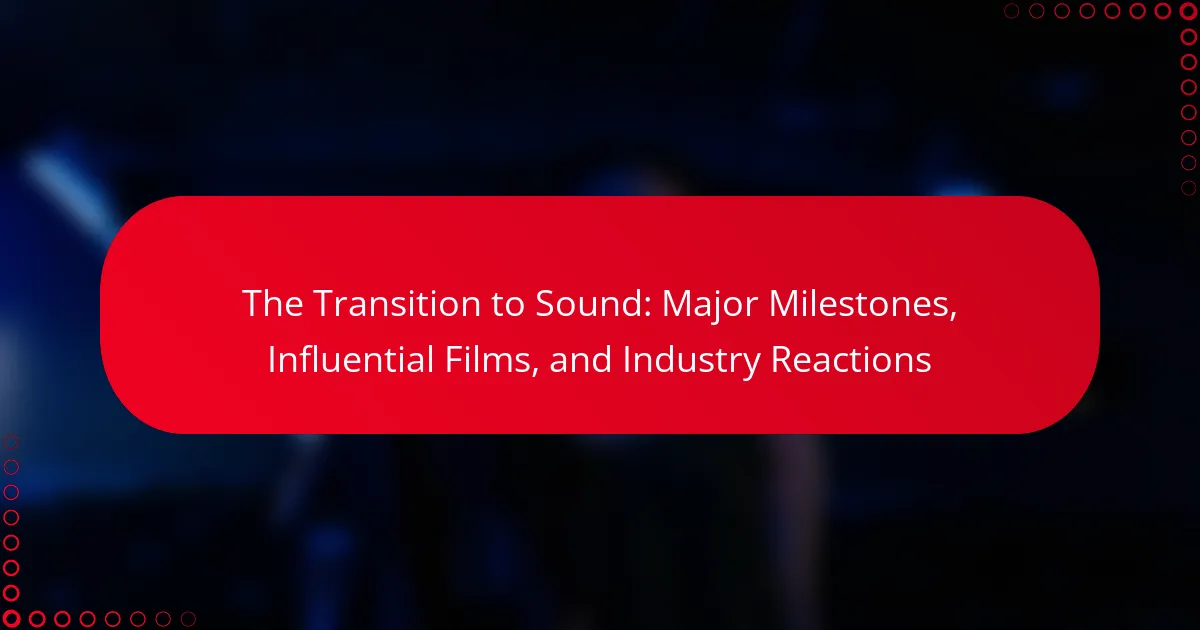
The Transition to Sound: Major Milestones, Influential Films, and Industry Reactions
The article explores the transition to sound in film, focusing on major milestones, influential films, and industry reactions. Key events include the release of “The Jazz Singer” in 1927, recognized as the first significant sound film, and “Lights of New York” in 1928, the first all-talking feature film. The introduction of synchronized sound technology, particularly […]
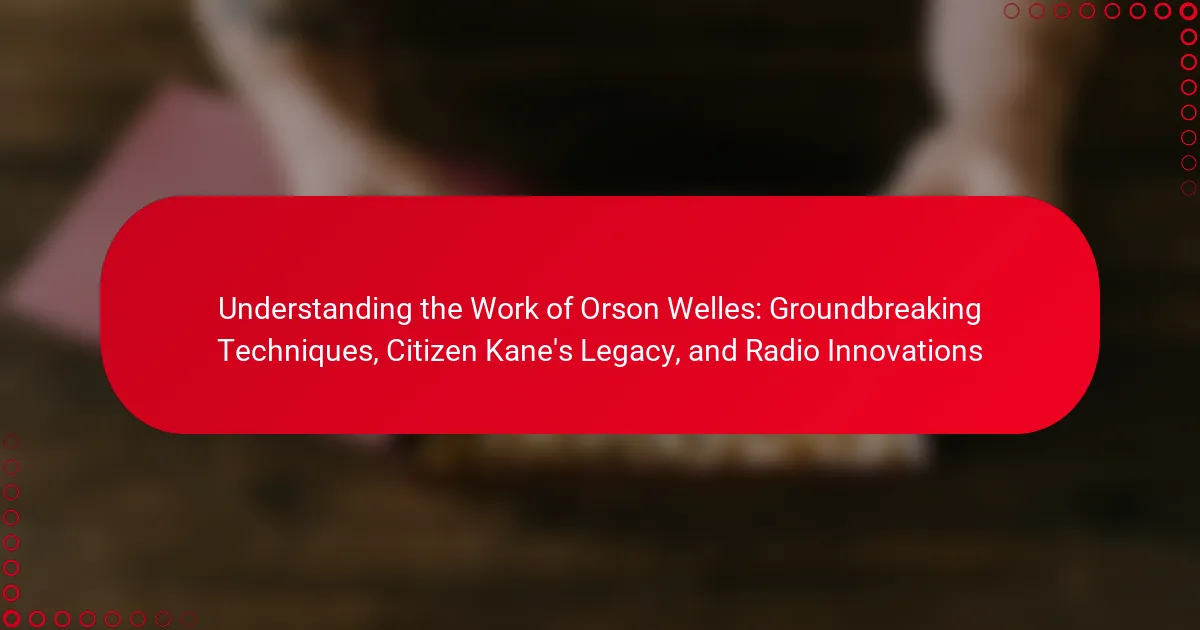
Understanding the Work of Orson Welles: Groundbreaking Techniques, Citizen Kane’s Legacy, and Radio Innovations
Orson Welles is a pivotal figure in film and radio, known for his groundbreaking techniques that transformed both mediums. His film “Citizen Kane,” released in 1941, is celebrated for its innovative narrative structure, deep focus cinematography, and complex character development, earning it a place among the greatest films in history. In radio, Welles gained notoriety […]

The Impact of World War II on Film: Propaganda Techniques, Notable Releases, and Shifts in Genre
World War II had a profound impact on film, influencing themes, production techniques, and audience engagement. The conflict led to the creation of propaganda films designed to support the war effort, while notable movies such as “Casablanca” and “The Great Escape” showcased wartime heroism. This period also saw a rise in war dramas and documentaries, […]

The Transformation of Action Movies: Pioneering Techniques, Notable Franchises, and Box Office Trends
The article examines the transformation of action movies, focusing on advancements in technology, storytelling techniques, and cultural shifts. Key elements include the use of CGI and practical effects that enhance visual experiences, as well as the evolution of narratives featuring complex characters, exemplified by franchises like the Marvel Cinematic Universe and the “Bourne” series. Future […]
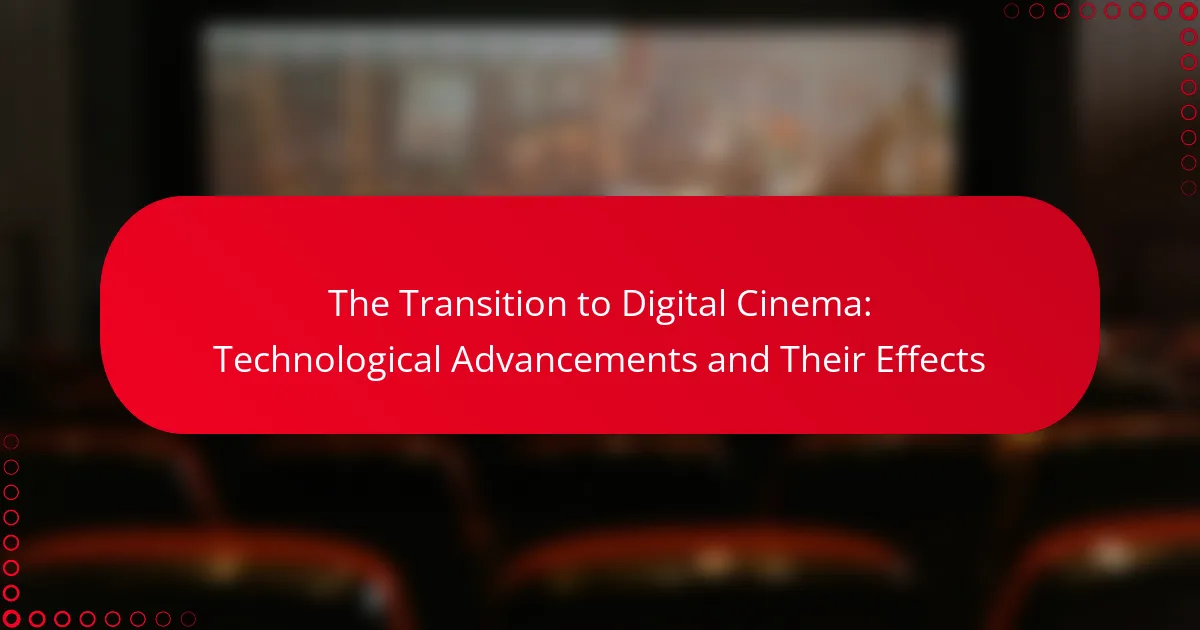
The Transition to Digital Cinema: Technological Advancements and Their Effects
The transition to digital cinema marks a significant shift from traditional film projection to digital technology in filmmaking and exhibition, beginning in the late 1990s and accelerating in the 2000s. This transformation has been driven by advancements in digital projectors, cameras, and editing software, resulting in improved image quality, reduced production costs, and enhanced creative […]
